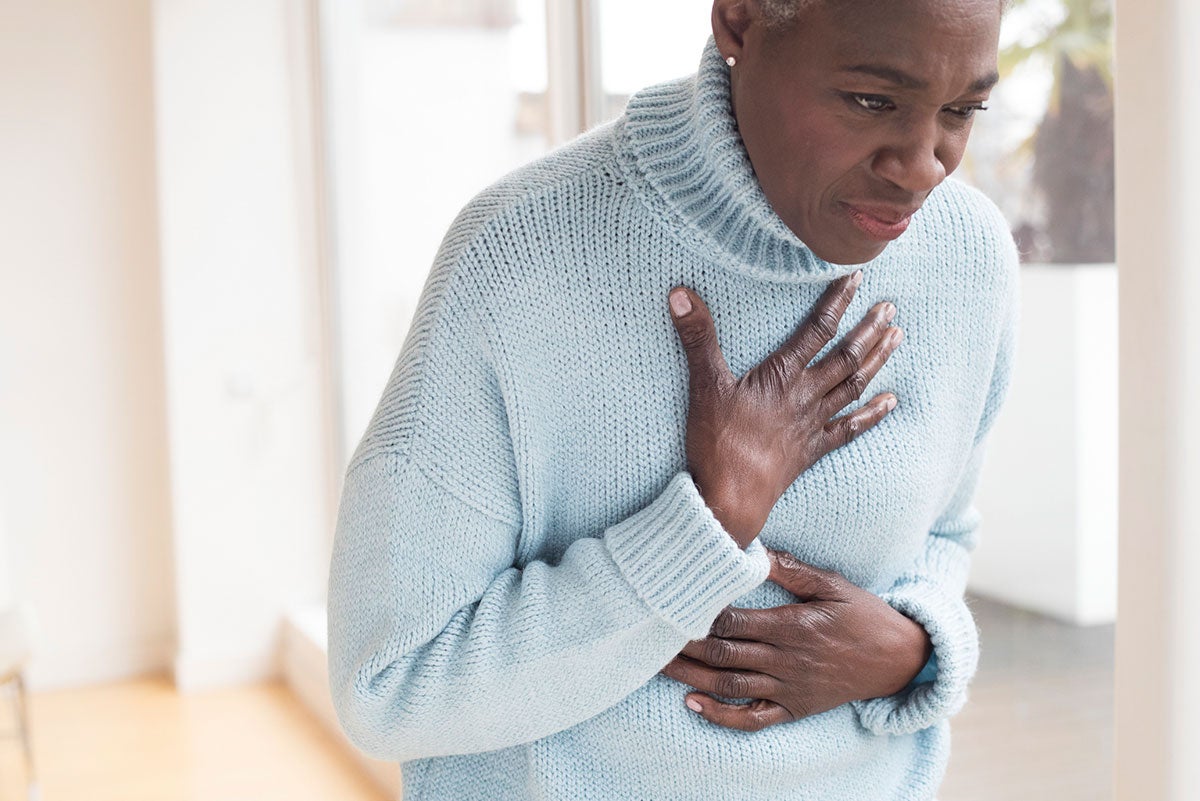When Your Heart Needs Care: The Bottom Line - Pay Attention to Chest Pain!
February 22, 2022
By: Alex Fass, NP
Categories: Heart Health
A conclusion to our series with a quick guide to one of the most basic questions.
St. Mary’s celebrates Heart Month 2022 with a month-long series of blogs dedicated to the health of your heart. Join us each Tuesday and Thursday – plus some bonus days! – to learn how to keep your heart healthy for life!
Today we conclude our series with a quick guide to one of the most basic questions…
What is chest pain?
- Chest pain, or angina, occurs when your heart does not pump enough blood to meet the needs of the heart muscle.
- Pain can be felt in your chest and can move to your arms, neck, jaw, and back.
- Typically, chest pain occurs when you are exercising or are exerting yourself (taking stairs, walking up a hill, emotional stress, etc.).
- Other symptoms may occur along with chest pain, including nausea, dizziness, shortness of breath and sweating.
Is there more than one type of chest pain?
- If symptoms occur with exertion and improve or resolve with rest, this is called stable angina.
- If symptoms occur at rest or at other random times, this is called unstable angina.
- Both types of angina may be early signs of an impending heart attack and should be discussed with your primary care provider or cardiologist as soon as possible.
Do men and women experience chest pain the same?
- Most commonly, women experience chest pain during a heart attack, much like men.
- Some women never develop chest pain but have symptoms such as cold sweats, nausea, shortness of breath, and/or tingling sensation of the arms and jaw.
What should I do if I experience chest pain?
- If you have experienced stable angina, you should discuss your symptoms right away with your primary care provider. Need to find a doctor?
- If you have experienced unstable angina, you should call 911 and be evaluated in the emergency department right away.
- It is important to get help from your physician before your symptoms get severe.
What happens next?
- After you tell your health care provider about your symptoms, they will get a detailed medical and family history from you. It is also important to discuss your lifestyle, tobacco use, exercise, diet and medications.
- Your provider will also perform a careful physical exam which may include an ECG/EKG (electrocardiogram) which shows the electrical activity of your heart.
- Other tests may be ordered such as a stress test with or without pictures. A treadmill stress test will challenge your heart to see how well your heart handles the demands of exercise. If you can’t exercise on a treadmill (for example, if your knees or hips can’t tolerate running), a medication can be given to increase your heart rate as if you were exercising. Imaging with stress tests can reveal if parts of your heart do not get enough blood flow.
- Other tests include coronary calcium score and coronary computed tomography, which uses non-invasive CT technology to look for plaque buildup or narrowing of the coronary arteries, which are the arteries that supply blood to heart muscle.
- An echocardiogram may also be ordered. This is an ultrasound of your heart that looks at the structure and function of the heart muscle and valves.
What can I do to reduce my risk of chest pain?
- Leading a healthy lifestyle is the best way to minimize the risk factors you can control
- Eat healthy—predominantly plant-based, low-salt diet with lots of fresh vegetables and fruits
- Do not smoke or vape cigarettes or other tobacco products. If you do, work on quitting. St. Mary’s can help
- Be physically active – just 21 minutes a day of moving your body can help protect you
- Avoid or limit alcohol
- Maintain a healthy weight
- Make sure to see all your doctors regularly and keep them updated on any changes
- Know your family history, especially if close relatives (parents, siblings, grandparents) have had heart attacks, strokes or other cardiovascular conditions.
When should I call 911?
- If chest pain happens or gets worse when you are otherwise relaxed and at rest, you need to call 911.
- If chest pain happens when you are exerting yourself (running, climbing stairs, biking up a hill, etc.), you may need to be checked out. Call your doctor.
Can St. Mary’s help?
St. Mary’s is certified as a Chest Pain Center with Primary PCI (the gold standard for diagnosing and treating heart attack) by the American College of Cardiology. We are here for you 24/7/365. When your heart needs care, St. Mary’s cares for your heart.
